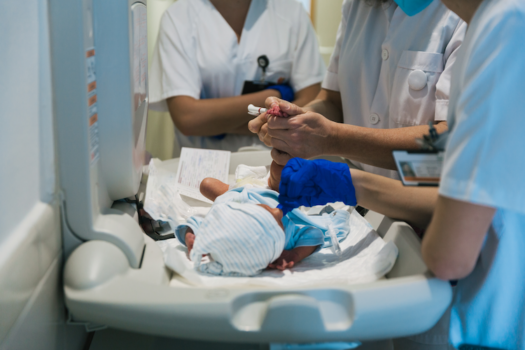
In New Jersey Division of Child Protection and Permanency v. B.P. (A-56-22/087676) (Decided May 21, 2024), the Supreme Court of New Jersey held that a New Jersey woman did not abuse or neglect her newborn by leaving her at the hospital two days after giving birth and not returning to claim her.
Facts of New Jersey Division of Child Protection and Permanency v. B.P.
After B.P. (Beth) gave birth to M.S. (Mia) in June 2020, the hospital contacted the New Jersey Division of Child Protection and Permanency (Division) because both mother and child tested positive for marijuana. Beth expressed to the Division caseworker that she would cooperate with the Division and engage in the offered services.
Beth was discharged from the hospital two days after delivering, but Mia remained in the hospital. Beth never returned to the hospital, and the Division was unable to contact or locate her because Beth provided the Division with incorrect contact information. Mia stayed in the hospital two days longer than she would have if Beth returned to take custody of her. Hospital workers clothed, fed, and cared for Mia. The Division caseworker testified that Mia was healthy and her needs were met during that time.
The Division took custody of Mia and placed her in a resource home. The Division filed an action against Beth, arguing that she abused and neglected Mia because she failed to exercise a minimum degree of care in supplying Mia with food, clothing, and shelter. Pursuant to N.J.S.A. 9:6-8.21(c)(4)(a), in order to substantiate an abuse or neglect finding, the Division must prove that a child’s “physical, mental, or emotional condition has been impaired or is in imminent danger of becoming impaired” due to the parent’s failure to “exercise a minimum degree of care . . . in supplying the child with adequate food, clothing, shelter, education, medical or surgical care.”
Beth appeared for the proceedings, and the trial court concluded that the Division met its burden in proving that Beth abused and neglected Mia. The Appellate Division affirmed.
NJ Supreme Court’s Decision in New Jersey Division of Child Protection and Permanency v. B.P.
The New Jersey Supreme Court unanimously reversed, holding that the Division failed to meet its burden of establishing by a preponderance of the evidence that Beth abused or neglected her newborn child.
“Although Beth left the hospital and did not return, Beth left Mia in a hospital where she was undoubtedly well taken care of and her needs were met,” Justice Fabiana Pierre-Louis wrote for the court. “Nothing in the facts suggest that Beth’s actions impaired Mia or put Mia in imminent danger of being impaired while she remained in the safety of the hospital’s care.”
In reaching its decision, the New Jersey Supreme Court explained that absent proof of the child’s actual impairment, the critical focus is on evidence of imminent danger or substantial risk of harm. Meanwhile, whether the parent failed to exercise a minimum degree of care means that a parent’s conduct must be grossly negligent or reckless when analyzed in light of the dangers and risks associated with the situation.
The Court went on to conclude that the facts of the case failed to provide a sufficient basis for a finding that Beth abused or neglected Mia within the meaning of N.J.S.A. 9:6-8.21(c)(4)(a) by putting her in imminent danger of being impaired due to lack of food, clothing, shelter, or medical care.
“Beth did not carelessly leave Mia alone on a street corner or in an alleyway without food or shelter, putting her at risk. Beth left Mia at a hospital — one of the safest places for a newborn child to be,” Justice Pierre-Louis wrote. “There is no question that Mia would be (and was) provided with food, clothing, shelter, and medical care if needed while in the hospital.”
The New Jersey Supreme Court rejected the Division’s argument that Beth placed Mia in imminent danger of being impaired because if Mia needed medical care for which a parent’s permission was necessary, the hospital and the Division would not have been able to locate Beth to obtain such parental permission.
“It is highly implausible that in an emergency or life-threatening situation, the medical staff at a hospital would not provide necessary care to a child already at the hospital but instead attempt to find the parent that had absconded in order to get permission to administer care,” Justice Pierre-Louis wrote.
